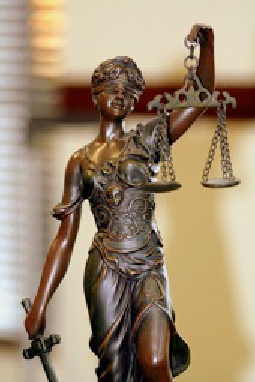The Right-Wing Plan To Rig SCOTUS
We used to pretend that there was a bipartisan understanding that we would put reasonably independent people on the Supreme Court. Long after that became a obvious lie, nominees would pretend they cared about independence, and assert their neutrality. Remember the smarmy testimony of John Roberts at his confirmation hearing in 2005:
I have no agenda, but I do have a commitment. If I am confirmed, I will confront every case with an open mind. I will fully and fairly analyze the legal arguments that are presented. I will be open to the considered views of my colleagues on the bench. And I will decide every case based on the record, according to the rule of law, without fear or favor, to the best of my ability. And I will remember that it’s my job to call balls and strikes and not to pitch or bat.
Those words are a sour joke now, but at the time most people at least pretended to believe them, and to believe that Roberts meant them. The questioning of Judge Ketanji Brown Jackson and the anticipated vote on her confirmation make it obvious that the Republicans aren’t even pretending now. Senator Ben Sasse, R-Neb., explained why he won’t vote to confirm Judge Jackson.
“Judge Jackson is an extraordinary person with an extraordinary American story,” Sasse said in a statement. “We both love this country, but we disagree on judicial philosophy and I am sadly unable to vote for this confirmation.
“Judge Jackson has impeccable credentials and a deep knowledge of the law, but at every turn this week she not only refused to claim originalism as her judicial philosophy, she refused to claim any judicial philosophy at all. Although she explained originalism and textualism in some detail to the committee, Judge Jackson refused to embrace them or any other precise system of limits on the judicial role,” the lawmaker said.
Sasse is blowing smoke. Judge Jackson has a judicial philosophy, and she explained it in her opening statement.
I have been a judge for nearly a decade now, and I take that responsibility and my duty to be independent very seriously. I decide cases from a neutral posture. I evaluate the facts, and I interpret and apply the law to the facts of the case before me, without fear or favor, consistent with my judicial oath.
Judge Jackson said she uses both originalism and textualism as helpful tools in making decisions, along with other tools developed over the past 230 years. But that’s not what Republicans want. They want assurances that they will win, and the code words are “originalism” and “textualism”.
Jack Balkin, a long-time law professor at Yale, wrote a short history of originalism and textualism. He explains that in the early 1970s, conservatives were looking for a judicial theory that would enable them to roll back the gains made by individuals and government in the Courts, and for ways to use courts to stall and kill government regulation of corporations and rich people. These two theories were created for the task. They are relentlessly pushed by right-wing rich people through their pet project, the Federalist Society and through support for conservative law professors.
Originalism is the idea that the Constitution should be construed in accordance with the public meaning of the words used at the time it was adopted. As a theory, it relies on the idea that SCOTUS can figure out what that public meaning was.
Textualism is the idea that statutes and the Constitution should be interpreted by reference solely to the words on the page, without regard to anything else. The goals of the legislation, the context, legislative history, none of it is relevant. Textualism relies on the idea that a legislature chooses every word in a law intentionally, that each word has only one meaning for purposes of the law, and that a judge can determine that meaning simply by reading the words maybe with the help of a dictionary.
There’s a germ of wisdom here. Some Constitutional language is capable of exactly one interpretation. Thus, the requirement that a person elected to the House have attained the age of 25 years when elected is capable of only one interpretation, as long as we agree that the election happens on the date of the election, and not the date when the vote is counted and certified under applicable state law.
No one really believes that there is a single fixed meaning to the words legislators use, or that they carefully picked every word, and no one really believes that every word of the Constitution was chosen to express some fixed idea. Let’s try some examples.
The Eighth Amendment prohibits Cruel and Unusual Punishments. SCOTUS recenetly ruled that the death penalty cannot be imposed for rape, but that was allowed for centuries. Does that mean that originalists and textualists would overturn Coker v. Georgia?
The Tenth Amendment says:
The powers not delegated to the United States by the Constitution, nor prohibited by it to the States, are reserved to the States respectively, or to the people.
There were no abortion laws in the US in 1791. Does that mean the matter is reserved to the people? Or to the states? How do you know which? Was there a Public Meaning of the words in the Tenth Amendment that would shed light on this question? Can you tell from the words?
Conservatives said that these two constructs, originalism and textualism, were neutral, and would constrain courts. That’s not what happened. In practice, textualism and originalism produced results in accordance with conservative demands in most cases. This essay lays out the evidence with links.
Lately there’s been concern among religious conservatives as to whether originalism and textualism are enough to get their way in full. Bostock v. Clayton County considered whether The Civil Rights Act of 1964, which prohibits discrimination in employment on the basis of “sex”, applied to gay and transgender people. J. Gorsuch held that it did on textualist grounds. J. Alito dissented on originalist grounds. The uproar that followed among the political Christians revealed the true focus of these two constructs: to use the courts to impose political preferences on a majority that has moved on.
Consider, as Professor Balkin does, the work of Adrian Vermuele, a Harvard professor and Catholic. Vermuele agrees with Balkin’s analysis of the history of originalism and textualism, but goes farther.
But originalism has now outlived its utility, and has become an obstacle to the development of a robust, substantively conservative approach to constitutional law and interpretation. Such an approach—one might call it “common-good constitutionalism”—should be based on the principles that government helps direct persons, associations, and society generally toward the common good, and that strong rule in the interest of attaining the common good is entirely legitimate.
For the right-wing it isn’t enough that a judge is fully qualified. They will only confirm nominees who will vote for conservative positions regardless of law or precedent or good sense. Republicans are the right-wing party. They want to rig SCOTUS.


